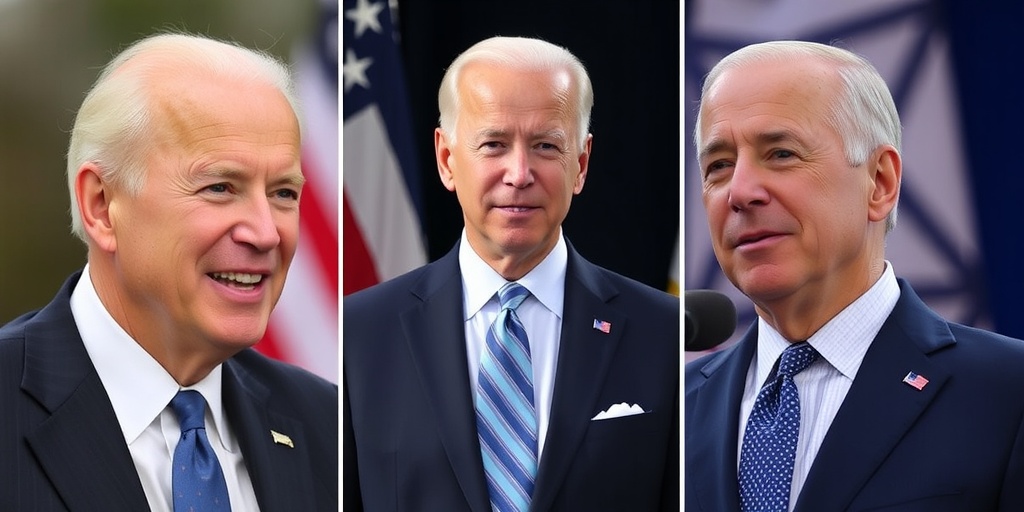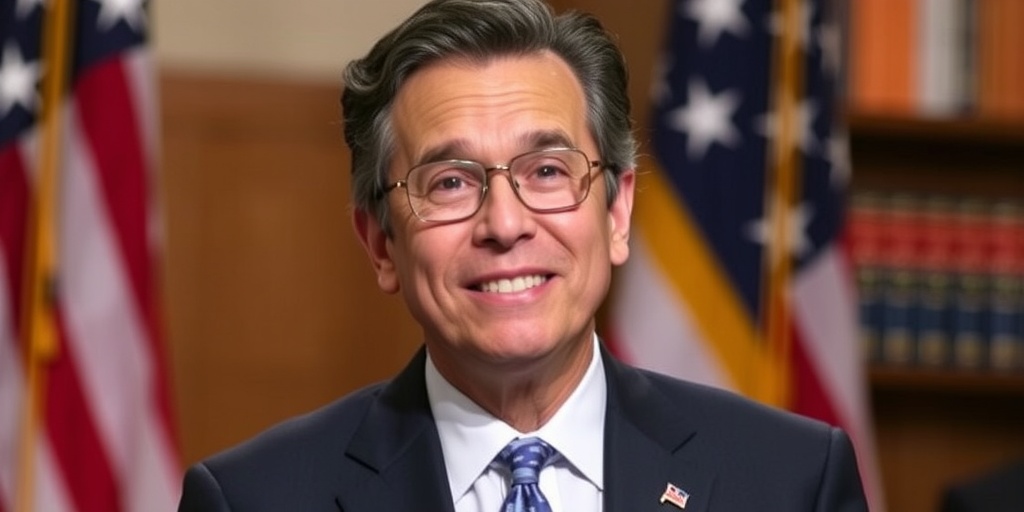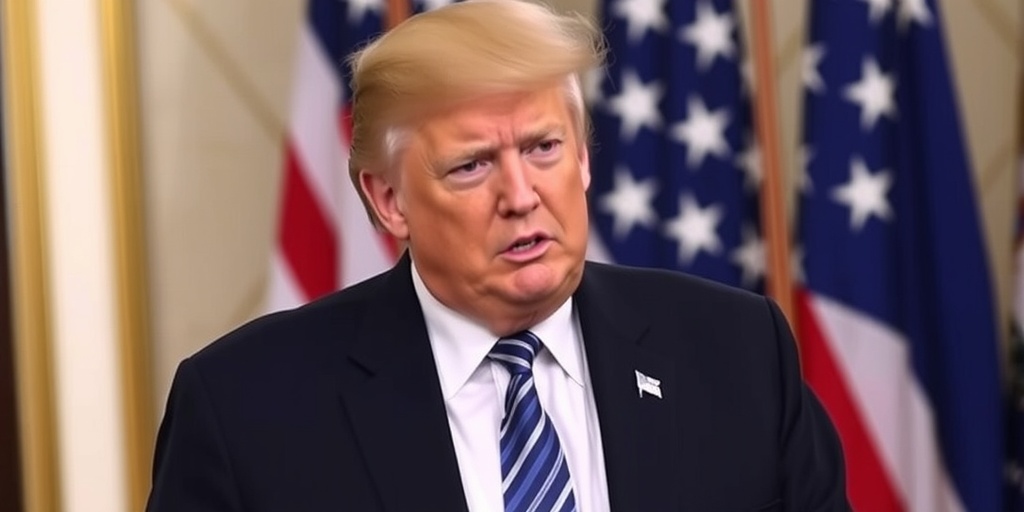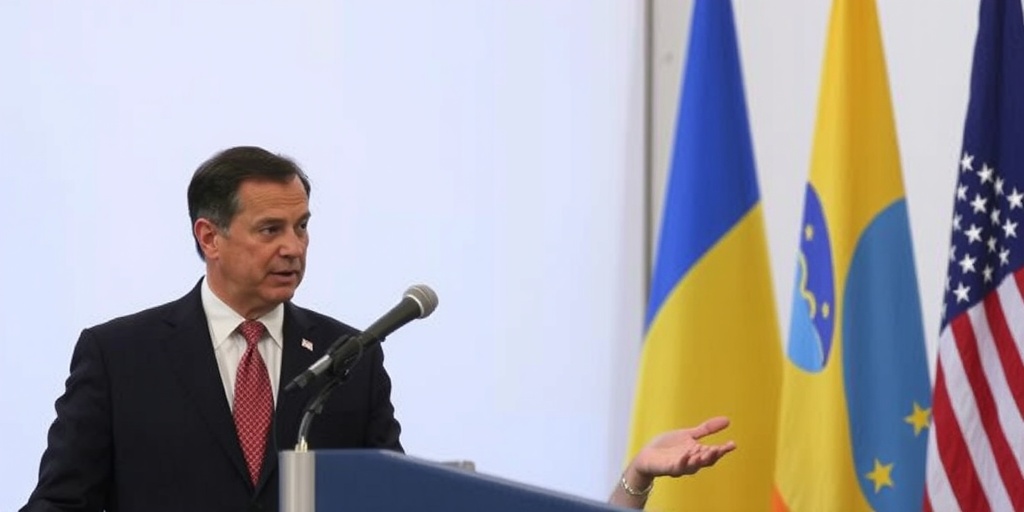Now Reading: U.S. Energy Secretary Commits to Renewed Focus on Climate Change
-
01
U.S. Energy Secretary Commits to Renewed Focus on Climate Change
U.S. Energy Secretary Commits to Renewed Focus on Climate Change

Energy Secretary Critiques Biden Administration’s Climate Policies, Advocates for Fossil Fuels
In a striking address to an audience of oil and gas executives on Monday, Chris Wright, the newly appointed U.S. Energy Secretary, launched a pointed critique of the Biden administration’s energy strategies and its approach to combating climate change. Wright, a former executive in the fracking industry, has positioned himself as a staunch advocate for the energy policies of the Trump administration, promising a substantial reversal of current practices.
Addressing the annual CERAWeek by S&P Global conference in Houston, which is attended by top figures in the energy sector, Wright declared that he intends to play a pivotal role in correcting what he perceives as misguided energy policies. He criticized the previous administration for its singular focus on climate change, suggesting that it has caused collateral damage to the American energy landscape and to people’s lives. His remarks were met with enthusiasm and applause from the audience.
Wright’s speech starkly contrasted the sentiments expressed the previous year by Jennifer Granholm, who held the energy secretary position under Biden. Granholm had emphasized the inevitability of transitioning toward low-carbon energy sources, such as wind and solar, while affirming the U.S.’s status as the leading oil and gas producer globally. In her speech, she highlighted the expansion of America’s dominance in clean energy, an assertion that Wright dismissed.
In his address, Wright took aim at renewable energy, arguing that it plays a minimal role in the global energy mix. He pointed out that natural gas contributes 25% of the world’s raw energy, while wind and solar collectively account for only about 3%. Emphasizing the versatility of natural gas, he noted its various applications—from heating homes to serving as a fundamental component in fertilizer and chemical production. Wright asserted, “There is simply no physical way wind, solar and batteries could replace the myriad uses of natural gas.”
Further advocating for fossil fuels, Wright made a moral argument, asserting that fossil energy is essential for alleviating global poverty. He warned against aggressive plans to reduce greenhouse gas emissions, labeling such ambitions as “sinister.” He particularly emphasized the energy needs of African nations, arguing against Western admonitions against coal development, which he called “nonsense.” His remarks echoed a growing sentiment among some energy executives who pitch fossil fuels as the primary solution to global energy poverty.
Michael Wirth, the CEO of Chevron, reinforced Wright’s comments, lamenting the billions living in energy poverty and calling for a reassessment of energy policies that overlook affordability. This perspective arises amidst substantial global investments in renewable energy, with around $1.2 trillion allocated to wind, solar, batteries, and electric grids last year, barely outpacing the $1.1 trillion spent on fossil fuel infrastructure.
While Wright contended that expanding wind and solar energy leads to rising energy costs—a claim that has mixed empirical support—other executives at the conference maintained that renewables are crucial for meeting the growing electricity demand. For instance, John Ketchum, head of NextEra Energy, emphasized that renewables are not only cheaper but also readily available, contrasting this with the delayed availability of natural gas infrastructure.
Despite criticism of the Biden administration’s approach, Wright announced the approval of a new liquefied natural gas (LNG) export terminal, marking a continuation of the U.S.’s leadership in natural gas exports despite the previous administration’s temporary approval pause. He asserted that the review of gas exports found minimal impact on both global emissions and domestic pricing.
On the climate change front, Wright identified as a “climate realist,” acknowledging that the planet is warming but framing rising greenhouse gas emissions as collateral from humanity’s developmental progress. He noted that the increase in carbon dioxide levels correlates with improved human life expectancy and the lifting of millions from extreme poverty. However, he did not delve deeply into the detrimental impacts of climate change, which pose significant risks such as natural disasters and species extinction, nor did he address the financial burdens of adapting to a changing climate.
In a critique of the United Kingdom’s aggressive reduction of greenhouse gas emissions, Wright claimed it led to the offshoring of industries with higher emissions, ultimately resulting in adverse economic and environmental outcomes. He lamented the irony of displacing production to countries with higher emissions, reinforcing that efforts to mitigate climate change must consider the economic ramifications.
While not entirely dismissive of low-carbon energy solutions, Wright indicated that the Trump administration’s policies are less likely to favor the development of wind energy due to rising public opposition. He pointed to the substantial public outcry against wind farms, suggesting that this reality might lead to a more cautious approach in wind energy development.
His remarks reflect a growing rift in the energy sector regarding the direction of U.S. energy policy, as many companies express concerns over the juxtaposition of fossil fuel expansion with aggressive climate policies. As the energy conversation continues to evolve, the ongoing debates surrounding the balance between fossil fuels and renewable energy will likely shape the future of U.S. energy strategy.
Stay Informed With the Latest & Most Important News
Previous Post
Next Post
-
 01New technology breakthrough has everyone talking right now
01New technology breakthrough has everyone talking right now -
 02Unbelievable life hack everyone needs to try today
02Unbelievable life hack everyone needs to try today -
 03Fascinating discovery found buried deep beneath the ocean
03Fascinating discovery found buried deep beneath the ocean -
 04Man invents genius device that solves everyday problems
04Man invents genius device that solves everyday problems -
 05Shocking discovery that changes what we know forever
05Shocking discovery that changes what we know forever -
 06Internet goes wild over celebrity’s unexpected fashion choice
06Internet goes wild over celebrity’s unexpected fashion choice -
 07Rare animal sighting stuns scientists and wildlife lovers
07Rare animal sighting stuns scientists and wildlife lovers





















